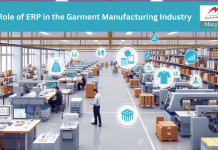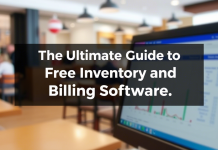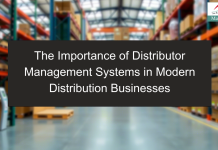In the present era, companies have to run their operations and supply chains smoothly. Any delay or error can result in losses. Therefore, companies implement ERP in supply chain management to simplify things. But what is ERP doing? Let’s understand it in simple terms.
What is Operations and Supply Chain Management?
Before we discuss ERP, let us first try to understand operations and supply chain management.
- Operations Management: This involves planning, organizing, and controlling all the activities required to produce products or services. It makes sure that everything operates smoothly, minimizes costs, and maximizes productivity.
- Supply Chain Management (SCM): It deals with the management of the movement of goods from raw materials to finished products. It encompasses suppliers, manufacturers, warehouses, distributors, and customers. An efficiently managed supply chain provides timely delivery and cost-effectiveness.
If operations and supply chains are well managed, companies can save money, minimize waste, and offer improved services to customers.
What is ERP in Supply Chain Management?
An ERP in supply chain management assists companies by integrating all their departments onto a single platform. ERP is short for Enterprise Resource Planning. It is a computer system that assists companies in managing their processes under one roof, rather than using many tools.
ERP enables businesses to automate their processes, maximize inventory, make better decisions, and enhance coordination among various teams.
Key Features of ERP in Operations and Supply Chain Management
A strong ERP system provides numerous features that assist in operating efficiently and managing the supply chain:
- Supply Chain Visibility: Offers real-time information on inventory levels, shipments, and demand patterns.
- Automated Inventory Management: Maintains optimal stock levels, avoiding overstocking or stockouts.
- Order Processing & Fulfillment: Increases the effectiveness of order processing and delivery schedules.
- Integrated Vendor Management: Assists in managing supplier relationships and procurement activities.
- Data Analytics & Forecasting: Utilizes AI and data analytics to forecast demand and supply requirements.
- Warehouse Management: Maximizes space utilization and minimizes storage expenses.
- Financial Tracking & Cost Control: Aids in budgeting, cost control, and financial planning.
- Production Planning: Facilitates smooth production activities with optimal scheduling.
Benefits of ERP in Operations and Supply Chain Management
Implementing ERP in supply chain management has several benefits to companies:
- Improved Planning: ERP assists companies in examining historical data and predicting demand to make efficient production and inventory management.
- Inventory Management: Live tracking avoids stock-outs and unnecessary stock buildup, lowering costs.
- Increased Order Processing Speed: Orders are completed at a fast rate, guaranteeing punctual delivery and enhanced consumer satisfaction.
- Seamless Communication: All business units, such as sales, production, and logistics, function harmoniously without communication lapses.
- Cost Saving: With improved inventory and operational control, companies can save on waste and lower costs.
- Improved Customer Service: ERP enables timely delivery and precise order tracking, leading to increased customer satisfaction.
- Regulatory Compliance: ERP makes companies adhere to industry rules and taxation regulations.
- Real-Time Decision Making: With precise data insights, companies can make fast and informed decisions.
How ERP Solves Common Supply Chain Problems?
Without ERP software, organizations can encounter the following problems:
- Order Fulfillment Delays: Orders take longer to fulfill because of inefficient coordination.
- Stock Mismanagement: Financial losses result from overstock or stockouts.
- Ineffective Communication: Transparency among departments is poor, resulting in errors and confusion.
- Operational Costs are High: Without planning, organizations end up spending extra money on logistics and warehousing.
- Data Inaccuracy: Errors in supply chain activities are inevitable when tracked manually.
An ERP system optimally addresses such challenges by rolling up all procedures under one interface, automating functions, and enhancing efficiency.
Choosing the Right ERP for Supply Chain Management
When choosing an ERP solution for your supply chain, consider the following factors:
- Scalability: Can the ERP solution scale with the needs of your business?
- Customization: Is it customizable by industry?
- User-Friendliness: Is it simple to use by employees across departments?
- Cloud-Based: Do you require a cloud-based setup for remote accessibility or an on-premise installation?
- Integration Capabilities: Does it support integration with other applications such as CRM, accounting, and warehouse management systems?
- Cost & ROI: Is the ERP system worth the cost with substantial ROI in the long run?
Why Marg ERP is the Best Software for Supply Chain Management
When it comes to selecting the best ERP, Marg ERP is the best fit for companies. Marg ERP provides a single software that solves all supply chain problems with accuracy and efficiency. Here’s why Marg ERP is the best:
- Complete Supply Chain Integration: Marg ERP integrates all business processes, ranging from procurement to delivery, with seamless operations.
- Real-Time Inventory Tracking: Prevent stockouts and overstocking with real-time inventory tracking and automated alerts.
- Quick and Error-Free Order Processing: Automate order management with Marg ERP, minimizing manual errors and boosting efficiency.
- Vendor and Supplier Management: Keep suppliers at arm’s length with automated purchase management and tracking.
- Data Analytics and Reports: Get useful insights with comprehensive reports on sales, purchases, and inventory trends.
- Cost-Effective Solution: Marg ERP assists organizations in reducing unwanted expenditures by optimizing assets and streamlining tasks.
- GST Compliance and Financial Management: Facilitate calculation of tax, invoices, and financial reports effortlessly with the pre-installed GST features in Marg ERP.
- User-Friendly Interface: Developed with ease of usage in mind, Marg ERP may be accessed by employees of departments without elaborate training.
- 24/7 Customer Support: Access guidance at any moment with Marg ERP’s 24/7 dedicated customer care assistance.
- Scalable and Configurable: Regardless of whether you are a small company or an enterprise, Marg ERP is adaptable to your requirements.
Conclusion
Using ERP in supply chain management is vital for contemporary business enterprises. ERP aids in operations, inventory, order fulfillment, and overall productivity. Of all ERP solutions available, Marg ERP is the optimal option for those seeking to maximize productivity, save on costs, and boost customer satisfaction. For you to expand your business and make it a smooth run, integrating Marg ERP into your system is an intelligent decision.
Frequently Asked Questions
What are SCM’s primary roles?
Supply Chain Management (SCM) has its hands involved in everything right from procuring raw materials to the delivery of the end product. Its prominent roles are procurement, production, inventory management, logistics, and demand forecasting. SCM facilitates trouble-free operations, lowers costs, and enhances effectiveness by streamlining the movement of goods, information, and finance.
Is supply chain and operations management the same?
No, they are connected but distinct. Supply Chain Management (SCM) is concerned with the movement of goods and materials through suppliers, manufacturers, and customers. Operations Management addresses internal business operations such as production, quality, and efficiency. SCM is more encompassing, encompassing the entire supply chain, whereas operations concentrate on in-house operations.
Is supply chain management included in ERP?
Yes, SCM can frequently be incorporated in Enterprise Resource Planning (ERP) systems. ERP consolidates supply chain modules such as inventory, procurement, and logistics along with finance, HR, and sales. It centralizes these to enhance accuracy of data, make better-informed decisions, and automate business processes for higher efficiency and profitability.
What can ERP do for your supply chain?
ERP is meant to facilitate automated procedures to ensure that every detail in your transactions is in check, accomplished at the right inventory levels, shipment tracking, and in real-time data, so waste can be reduced and costs minimized with collaboration between suppliers and customers. Smarter decisions will be made and market demand will be addressed in time.
How To Identify the Right ERP To Improve Supply Chain Management?
Select an ERP that provides real-time tracking, automation, demand forecasting, and smooth integration with suppliers. It must be user-friendly, scalable, and industry-specific. Cloud-based ERPs offer improved accessibility and updates. Always refer to customer reviews, vendor support, and cost-effectiveness before selecting.




















